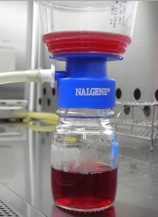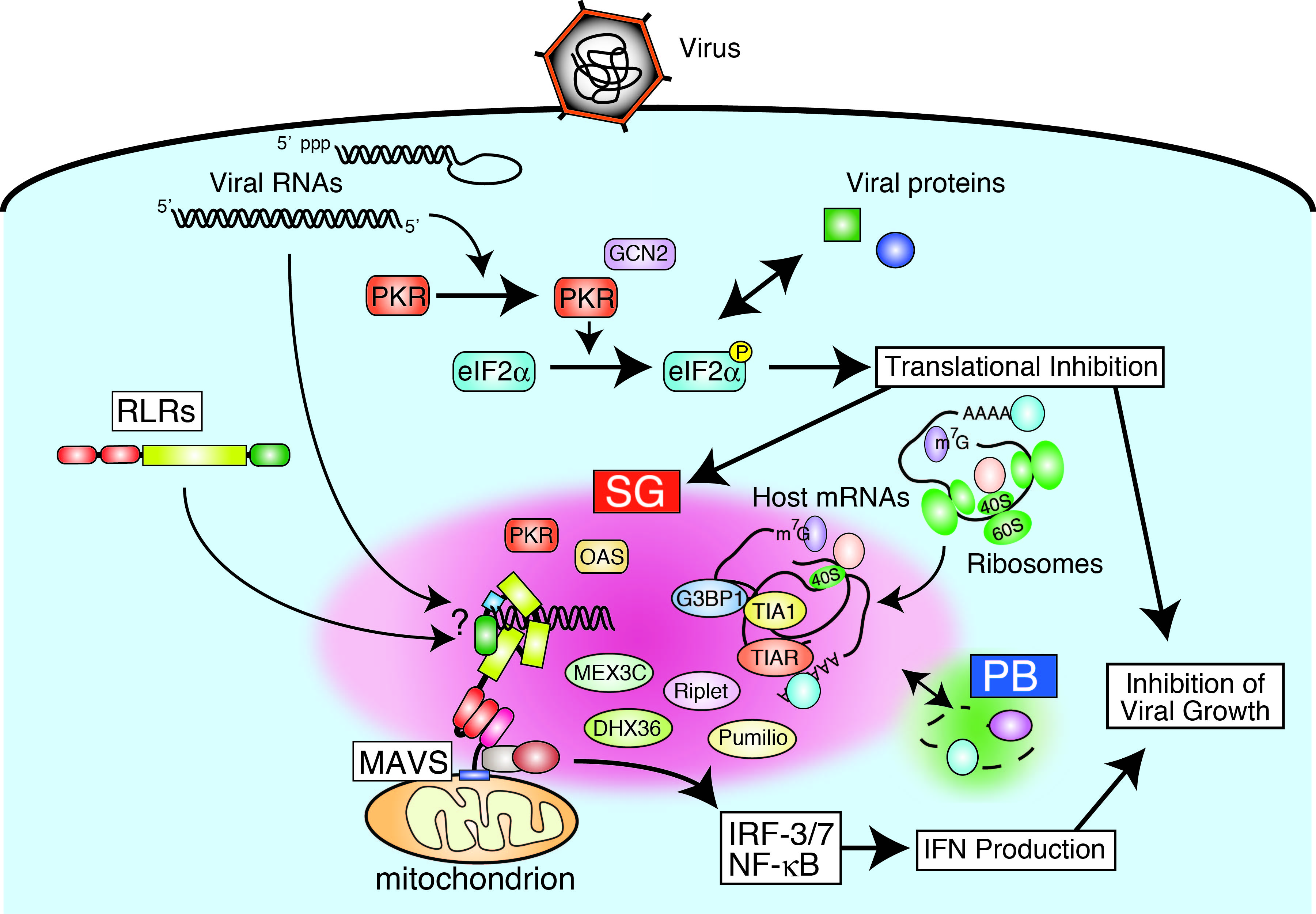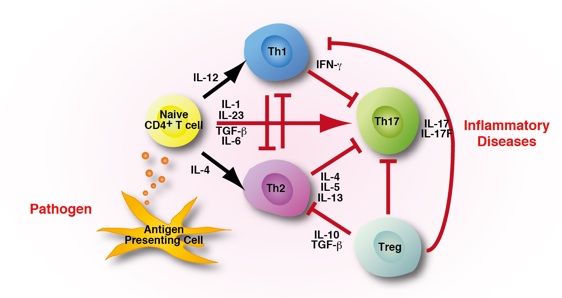
<Research>
In 2010, MMRC is newly reorganized with seven research projects. Division of Molecular Immunology has two research projects concerning about immunological researches. Please check the research details of each projects!

Project for immune responses in infectious diseases
(PI: M.Yoneyama)
Infectious diseases by viruses, such as Influenza, viral hepatitis and AIDS..., are great threats of our daily lives. In order to defeat them, it must be important to understand our immune system. We have two highly organized immune machineries, innate and adaptive immunity. Among them, innate immunity is critical for not only swift eradication of the infected pathogens but also fine tuning of the subsequent adaptive immunity. In 2004, we identified cytoplasmic viral RNA sensor molecules, RIG-I-like receptors (RLRs), and demonstrated their essential function in anti-viral innate immunity. In this project, we are analyzing physiological significance and molecular mechanism of RLRs-mediated anti-viral signaling.The summary of our research results is as followings:
- .RLRs play a critical role in anti-viral innate immunity, including activation of type I interferon genes.
- Among three RLR family members (RIG-I, MDA5 and LGP2), RIG-I and MDA5 detect viral non-self RNA structures with distinct specificities (i.e. 5‘triphosphate-containing short double-stranded RNA (dsRNA) and long dsRNA, respectively).
- In response to viral non-self RNA, RIG-I and MDA5 switch their conformation in ATP-dependent manner, and transmit signal via caspase recruitment domain (CARD)-CARD interaction with the downstream mitochondrial adaptor molecule, IPS-1.
- RLRs recognize substrate RNA with C-terminal negatively charged domain (CTD).
- Recently, we observed RLRs localize stress granule (SG)-like structure in response to viral infection.
In this project, we aim to understand the physiological significance of RLRs in innate immunity and the molecular machinery underlying detection of viral non-self RNA and signal transduction. Furthermore, it is still unknown how RLRs are recruited to SGs and involved in detection of foreign RNAs in SGs. Also, it is unclear whether the RLRs interact with endogenous self-RNA(s) and have any unknown biological function. On the other hand, it has been demonstrated that the SNPs of RLRs are linked to several auto-immune diseases. We are analyzing function of RLRs using molecular biological, biochemical, cell-biological approaches.

Project for Cytokine Research (PI: S. Saijo)
Cytokines are produced by mammalian cells and promote cell proliferations, differentiations or inhibitions through binding receptors. The production of cytokines is strictly controlled, because although they are indispensable for the host defense against microbes, an excess of their production causes damage to the host such as autoimmune diseases or allergies. In our project, we will study the mechanisms of immunological homeostasis, especially the mechanisms of maintenance and moving to imbalance.
The summary of our research results is as followings:
- Dectin-1, a C-type lectin which bind to carbohydrates, is a receptor for beta-glucans and induces pro-inflammatory cytokine and reactive oxygen species (ROS) production.
- Dectin-2, another C-type lectin, is a receptor for alpha-mannans and induces cytokines including IL-1, IL-6 and IL-23. The induced cytokines promote Th17 differentiation.
- Dectin-1 deficient mice are more susceptible to the pathogenic fungus, Pneumocystis carinii, on the other hand, Dectin-2 deficient mice are more susceptible to another pathogenic fungus, Candida albicans. These findings indicate that Dectin-1 and Dectin-2 play important roles in the host defense against these pathogenic fungi.
- IL-17 plays an important role in the host defense against pathogenic fungi, however, the production of IL-17 causes autoimmune diseases such as inflammatory arthritis.
In this project, we will use gene-deficient mice, transgenic mice, to investigate the immune system. Gene manipulating techniques make it possible to directly study the mechanisms of immune disorders and infectious diseases. We aim to find new therapeutic targets for inflammatory diseases and infectious diseases.

